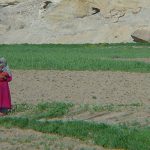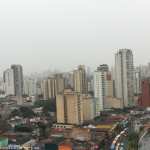
I’ve loved video games my entire life. Role-playing, survival, platform, strategy, sports—if it’s playable, I’m (virtually) there. Video games are often considered a distraction from the real world, but they may have more in common with life on this side of the screen than you think.

Climate change is a global problem, and yet its effects and people’s ability to adapt are inherently local. Given this mismatch in scales, how can continental-scale research take local perspectives and differences into account? Additionally, how can research at a continental scale provide useful information for local climate adaptation strategies?

Extreme events like droughts and floods are projected to become more common in a changing climate. As they do, their effects on agriculture, health and infrastructure will disproportionately impact those who already have limited socio-economic resources. For this reason, several organizations focused on international development have started to consider climate change projections in their projects and operations. Their goal is to avoid increasing the development gap.

“SACRAMENTO – The Governor has left the state” – Governor’s Press Office.
That was the message in the inbox of all office staff one weekend in early June, to notify that Governor Jerry Brown was headed to Beijing to discuss climate change and diplomacy with Chinese officials. The event was rare. Governors rarely travel abroad for international diplomacy.

Although the Atlantic Forest covers 463,000 square miles of Brazil’s eastern coast and supports around 60 percent of the country’s threatened animal species, it is not as celebrated as the Amazon Rainforest. Like the Amazon, it is one of the most biologically diverse and productive ecosystems in the world.








